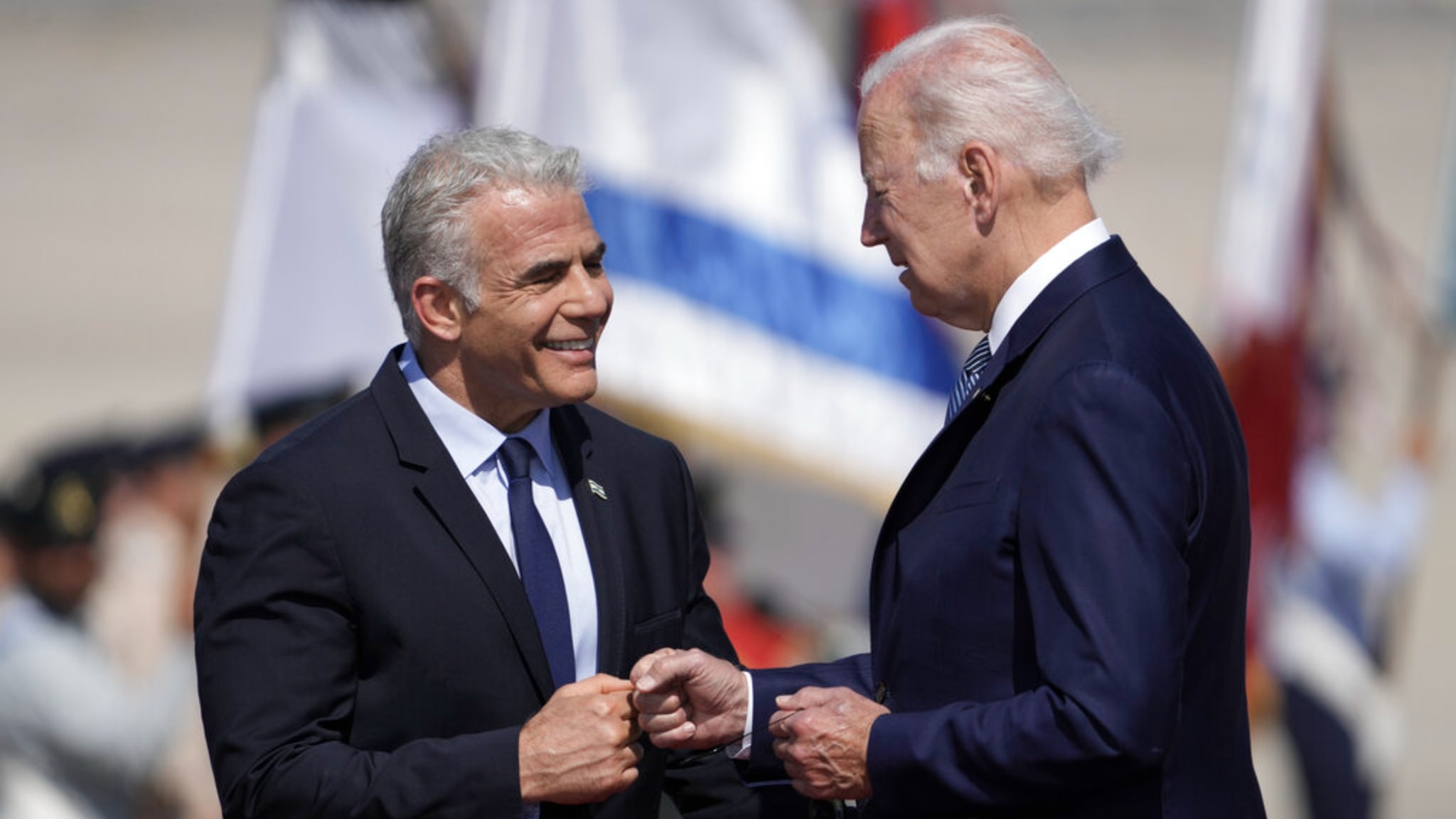US President
Joe Biden
, following his arrival in Israel at Tel Aviv's Ben Gurion Airport, along with Israeli Prime Minister Yair Lapid and Defense Minister Benny Gantz, visited a number of
missile defense systems
including Iron Dome and Iron Beam, a new laser defense apparatus designed to take down smaller targets, such as drones, rockets, mortars and anti-tank missiles.
The head of the White House, who went to the Middle Eastern country for the first time as president, then moved to Jerusalem for a ceremony at the
Yad Vashem Holocaust Museum
, the Holocaust museum.
Waiting for him, again Prime Minister Yair Lapid, Defense Minister Benny Gantz, former Ashkenazi Chief Rabbi of Israel Meir Lau, President Isaac Herzog and Museum Director Dany Dayan.
@handle
A moved Biden at the Yad Vashem Shoah Museum
"We will continue to support
Israel's greater integration
into the region", confirming "the United States' commitment to Israel's
security
", although the
two-state solution
"in my opinion remains the best way to secure the future in equal measure. of freedom, democracy and prosperity for both Israelis and Palestinians ”.
These are the central points of
Biden
's keynote speech upon his arrival in Tel Aviv, for a visit to the Middle East with a high symbolic value, which will also lead him to visit Saudi Arabia, where he will meet Crown Prince Mohammed bin Salman.
Upon arrival at Ben Gurion airport, the absence of handshakes between the American president and the personalities who came to welcome him was immediately noticed: Prime Minister Lapid, Naftali Bennett and Israeli President Isaac Herzog;
together with them the government ministers and also the former premier Benjamin Netanyahu.
Beyond the official motivation (the anti-Covid protocol), it seems that some have motivated the choice of the head of the White House with the next stage of his Middle Eastern journey, which will lead him to a face to face with the controversial figure of Mohammed bin Salman, considered responsible for the assassination of dissident journalist Jamal Khashoggi, killed in the Riyadh consulate in Istanbul in October 2018. The American president, criticized for this meeting,
it is assumed that he does not want to shake hands with the "de facto" ruler of the Saudi monarchy;
and that would explain the decision not to do it even in Israel.
"You don't have to be Jewish to be a Zionist," Biden added among his first statements.
The US president then recalled that this is his
tenth visit
to Israel, albeit the first as president.
The start of the visit was also marked by the controversy over the
consulate
issue , which the United States - in the words of National Security Advisor Jake Sullivan - wanted to reopen in East Jerusalem;
this statement was later corrected with a note from Jack Kirby, coordinator of the Strategic Communication of the National Security Council, who specified that the reference to the "east" part of the Holy City was a simple "mistake".
"It is an honor to still be here among friends," he said to Israeli President Herzog and incumbent Prime Minister Lapid.
The latter urged Biden on the need to "renew a
global coalition to stop the Iranian nuclear problem
".
Iran and its allies, President Herzog said for his part, "threaten Israel and endanger the region".
The Israeli head of state then specified that Biden's trip from Israel to Saudi Arabia is "a journey of peace".
Herzog said he hoped the visit "will help advance an era of prosperity, integration, peace and security for the entire region."

